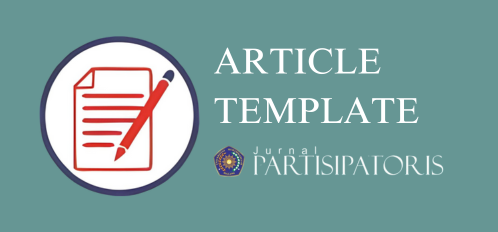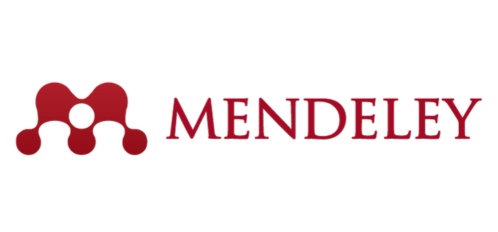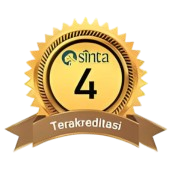The The Utilization of Spirit of Saemaul Undong through Village Renewal Program in DI Yogyakarta
DOI:
https://doi.org/10.22219/jp.v4i2.27776Abstract
Saemaul Undong is a sustainable development concept which already applied in several developing countries as well as in Indonesia. Saemaul Undong which means the new village movements aims to improve the village area that is experiencing inequality with the urban area. Saemaul Undong has 3 principles of spirit, namely diligence, self-help, and cooperation, with this principle of three spirits, the villagers are able to advance their village. Because of this successful, Saemaul Undong expanded into the global realm and became the Memory of World Register which was inaugurated by UNESCO. This research discusses the application of the three Saemaul Undong spirits through village renewal policy programs in Yogyakarta. This research uses the concept of the three Saemaul Undong spirits to explain the interrelationship between the village renewal programs implemented in the three villages that are used as pilot projects for Saemaul Undong. This research uses qualitative methods with data collection techniques through fieldwork, literature study, and literature review. Data were obtained from various sources such as interviews with resource persons, books, journals, theses, articles, or news and official websites related to Saemaul Undong.
Downloads
References
th Meeting of the International Advisory Committee of the Memory of the World Pro-gramme, Gwangju Metropolitan City, Republic of Korea, 18 to 21 June 2013: Draft agenda. (2013). UNESCO. https://unesdoc.unesco.org/ark:/48223/pf0000234044
ADB. (2012). The Saemaul Undong movement in the Republic of Korea: Sharing knowledge on community-driven development. Asian Devel-opment Bank. https://www.adb.org/sites/default/files/publication/29881/saemaul-undong-movement-korea.pdf
Desa Lestari. (2016, December 29). Gerakan Pembaharuan ala Saemaul Undong. Desa Les-tari Website. https://desalestari.com/2016/12/29/gerakan-pembaharuan-ala-saemaul-undong/
Dewi, S. P. (2020). Analisis Implementasi Kerjasa-ma Sister-Province Antara Provinsi Yogyakar-ta Dengan Gyeongsangbuk-Do Dalam Pengembangan Desa. Jurnal Inovasi Ilmu So-sial Dan Politik, 2(1), 42. https://doi.org/10.33474/jisop.v2i1.5033
Douglass, M. (n.d.). The Saemaul Undong: South Korea’s rural development miracle in histori-cal perspective. Asia Research Institute. Re-trieved March 9, 2021, from https://www.researchgate.net/publication/284891728_The_saemaul_undong_South_Korea%27s_rural_development_miracle_in_historical_perspective
Gultom, Y. W. (2022). Politik Pembangunan Desa dalam Program Saemaul Undong di Desa Pon-jong, Kabupaten Gunung Kidul, Yogyakarta. Politeia: Jurnal Ilmu Politik, 14(1), 42–54. https://doi.org/10.32734/politeia.v14i1.6662
Heo, J., & Lee, Y. (2016). Global Spread of Saemaul Undong for Rural Development in Developing Countries. KREI. https://repository.krei.re.kr/bitstream/2018.oak/22256/1/Global%20Spread%20of%20Saem-aul%20Undong%20for%20Rural%20Development%20in%20Developing%20Countries.pdf
Indraswari, F. V. (2015). KERJASAMA INDONESIA-KOREA SELATAN DALAM PENGEMBANGAN DESA MELALUI SISTEM SAEMAUL UNDONG (Studi Kasus Kerjasama Lintas Batas Daerah Istimewa Yogyakara-Gyeongsangbuk-Do). Jurnal Transformasi Global, 2(2). https://transformasiglobal.ub.ac.id/index.php/trans/article/view/28/42
Kim, W., & Kim, W. (2019). The Relationship between Korean Rural Development Policy and Saemaul Undong in 1970s. https://doi.org/10.22004/AG.ECON.330769
Lee, H. (2017). THE GLOBAL SAEMAUL UNDONG PROJECT - A WOLF IN A SHEEP’S CLOTHING [Aalborg University]. https://projekter.aau.dk/projekter/files/260346374/Master_Thesis_Hyunju_Lee.pdf
Mukti, T. A. (2013). Paradiplomacy: Kerja sama luar negeri oleh Pemda di Indonesia. The Phinisi-Press.
Puspitasari, D. C., Satriani, R., & Pmungkas, S. B. (2019). PENGEMBANGAN KAPASITAS MASYARAKAT PARTISIPATIF: STUDI IMPLE-MENTASI PROGRAM SAEMAUL UNDONG DI KABUPATEN GUNUNG KIDUL DIY. Jurnal So-siologi Pendidikan Humanis, 4(1), 1. https://doi.org/10.17977/um021v4i1p1-13
Qomah, K. I. (2017, October 20). Bisnis Berkonsep Saemaul Undong Berkembang di Gunungkidul, Apa Itu? Harian Jogja. https://jogjapolitan.harianjogja.com/read/2017/10/20/512/861320/bisnis-berkonsep-saemaul-undong-berkembang-di-gunungkidul-apa-itu
Rho, Wha-Joon. (2014). Triple Helix for Social Innovation: The Saemaul Undong for Eradicat-ing Poverty. Journal of Contemporary Eastern Asia, 13(1), 39–55. https://doi.org/10.17477/JCEA.2014.13.1.039
Yi, Y. (n.d.). [President Park Geun-hye and Her UN Diplomacy] Selling Reunification and the Saemaul Undong on the UN Stage. Retrieved February 2, 2018, from http://english.khan.co.kr/khan_art_view.html?artid=201509301815517&code=910302
Downloads
Published
How to Cite
Issue
Section
License

This work is licensed under a Creative Commons Attribution-ShareAlike 4.0 International License.
Authors who publish with Jurnal Partisipatoris agree to the following terms:
- For all articles published in the Jurnal partisipatoris, copyright is retained by the authors. Authors give permission to the publisher to announce the work with conditions. When the manuscript is accepted for publication, the authors agree to the automatic transfer of non-exclusive publishing rights to the publisher.
- Authors retain copyright and grant the journal right of first publication with the work simultaneously licensed under a Creative Commons Attribution-ShareAlike 4.0 International License that allows others to share the work with an acknowledgment of the work's authorship and initial publication in this journal.
- Authors are able to enter into separate, additional contractual arrangements for the non-exclusive distribution of the journal's published version of the work (e.g., post it to an institutional repository or publish it in a book), with an acknowledgment of its initial publication in this journal.
- Authors are permitted and encouraged to post their work online (e.g., in institutional repositories or on their website) prior to and during the submission process, as it can lead to productive exchanges, as well as earlier and greater citation of published work (See The Effect of Open Access).











